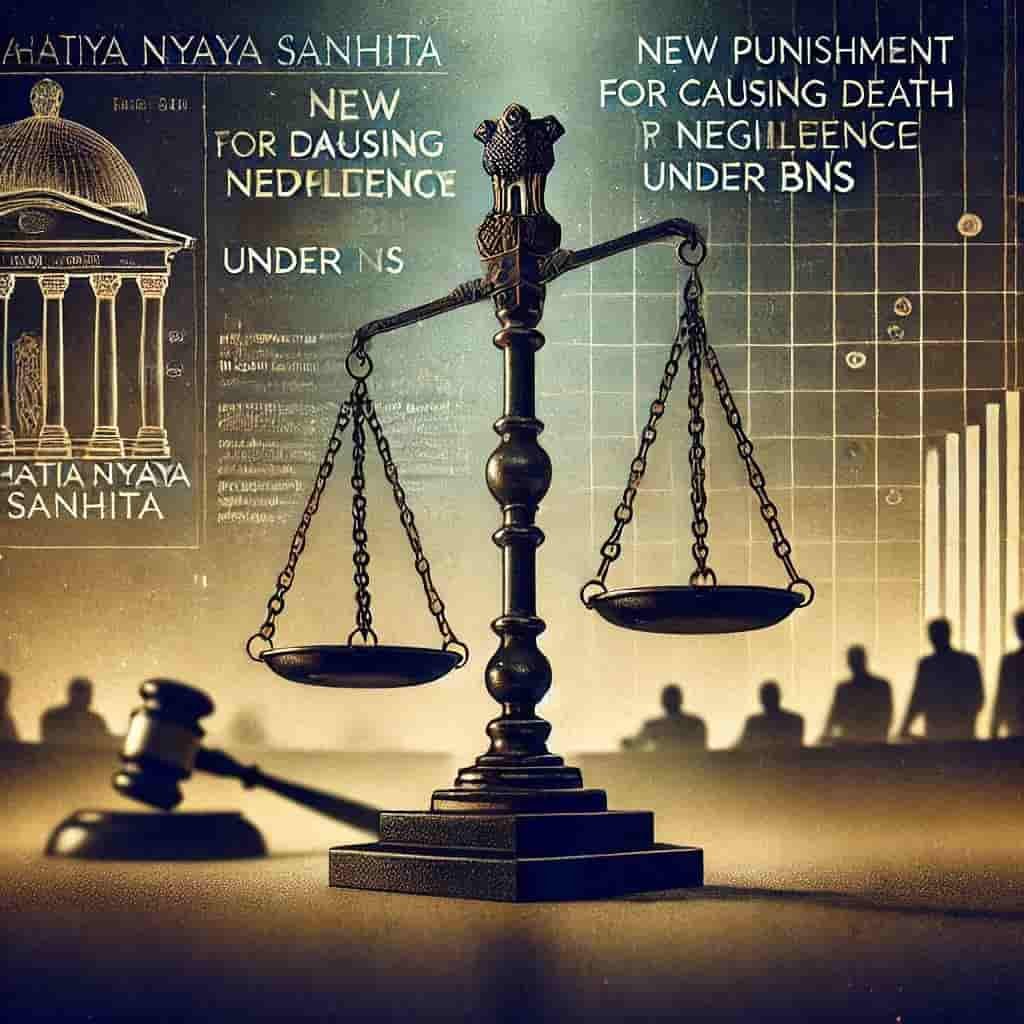Changes to Punishment for Causing Death by Negligence in the BNS
New Punishment for Causing Death by Negligence under BNS, as outlined in Section 106 of the BNS, compared to the corresponding provision in the IPC (Section 304A).
1. Increased Imprisonment Term:
- The BNS increases the maximum imprisonment term for causing death by negligence from two years (as per Section 304A of the IPC) to five years. This reflects a stricter approach towards holding individuals accountable for negligent actions resulting in death.
2. Mandatory Fine:
- While both the IPC and the BNS allow for the imposition of a fine, the BNS makes it mandatory to impose a fine in addition to imprisonment. This further emphasises the seriousness of the offence and aims to provide a financial deterrent.
3. Specific Provision for Hit-and-Run Cases:
- The BNS introduces a new provision, Section 106(2), specifically addressing hit-and-run cases where the driver causes death by negligence and escapes without reporting the incident. This provision prescribes a harsher punishment of up to ten years imprisonment and a fine. However, it’s important to note that this provision “shall not come into force on 1st July 2024” and is currently “kept in abeyance”.
4. No Change for Medical Negligence:
- Despite the overall increase in the punishment for causing death by negligence, the BNS retains the same punishment for registered medical practitioners committing this offence during medical procedures. The maximum imprisonment remains two years with a mandatory fine.
5. Rationale for Changes:
- The changes in the BNS reflect a legislative intent to:
- Impose stricter penalties for negligent actions resulting in death, deterring individuals from engaging in reckless behaviour.
- Address the growing concern of hit-and-run cases, holding drivers accountable for fleeing the scene of a fatal accident.
Comparison with Previous Conversation:
- It’s worth noting that our previous conversation focused on the definition of “offence” in the BNS, not specifically on punishments for causing death by negligence. Therefore, the current response provides new insights based on your specific query and the information available in the provided sources.
These changes in the Bharatiya Nyaya Sanhita demonstrate a shift towards a more stringent approach to holding individuals accountable for causing death due to negligence, particularly in situations like hit-and-run cases where escape is involved. However, the specific provisions regarding medical negligence and the delayed implementation of the hit-and-run clause suggest a nuanced approach that considers the context of the offence.
READ MORE: New Provision of Mob Lynching in BNS, 2023: Explained
How does BNS redefine “child” and “Judge”?
What is the definition of Good Faith in BNS?

